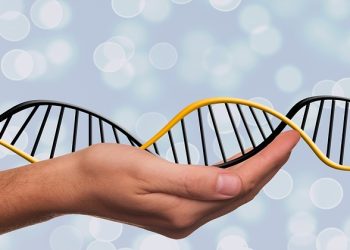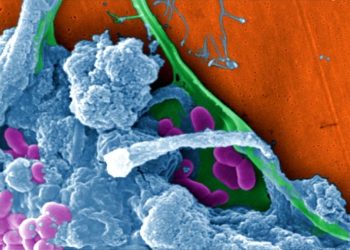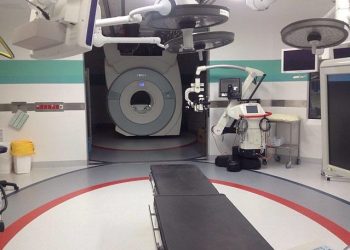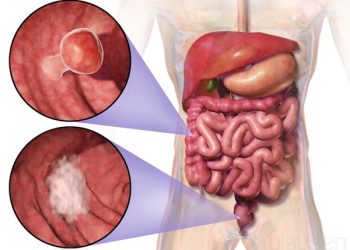Justin Bieber, the 28-year-old Canadian pop singer, announced recently in an Instagram post that he has cancelled a few of his upcoming concerts in US, as he he has been infected by a virus that causes the Ramsay Hunt syndrome.
“As you can see, this eye is not blinking,” Bieber told his fans in a video on Instagram. “I can’t smile on this side of my face. This nostril will not move.”
He added,”“For those frustrated by my cancellations of the next shows, I’m just physically not capable of doing them.”
What Is Ramsay Hunt Syndrome?
Ramsay Hunt syndrome – named after the neurologist James Ramsay Hunt, who first described the illness – is a rare neurological disorder that typically affects adults over 60 years of age. The disorder is characterized by facial weakness or paralysis of the facial nerve (facial palsy) and a rash affecting the ear or mouth. This syndrome results in inflammation of the geniculate ganglion of cranial nerve VII the nerve that controls expressions and movement of the face.
This occurs when a shingles outbreak affects the facial nerve near one of affected person’s ears.
In addition to the painful shingles rash, Ramsay Hunt syndrome can cause facial paralysis and hearing loss in the affected ear.
What Are The Symptoms Of This Syndrome?
The symptoms of Ramsay Hunt syndrome vary from person to person. Affected individuals usually experience paralysis of the facial nerve and a rash affecting the ear. These two symptoms do not always occur at the same time. In most people, only one side of the face is affected.
Symptoms usually begin with pain in the ear on the affected side of the face in around 55 per cent of patients with the disorder. Facial paralysis and vesicles (small fluid-filled sacs or blisters) appear in 2-3 days. In 23 percent of patients, facial paralysis is the first symptom hinting at the disorder. Less than one percent of zoster cases involve the facial nerve and result in Ramsay Hunt Syndrome.
The vestibulocochlear nerve that transfers impulses from the inner ear to the brain is located very close to the facial nerve, and can therefore cause hearing and balance-related complications like auditory loss, tinnitus (ringing sensation in the ears), and vertigo.
Additional symptoms of the disorder include a change in taste sensation, dry eyes, tearing, nasal obstruction, hyperacusis or noise sensitivity, and dysarthria or speaking difficulties.
The disorder is easy to miss in the early stages and diagnosis can often be delayed, leading to long-term complications.
What Brings On Ramsay Hunt Syndrome?
Ramsay Hunt syndrome is caused by the varicella-zoster virus, which is the same virus that causes chickenpox and shingles. The virus can remain dormant for decades in a person who has had chickenpox as a child.
How Common Is This Disorder?
Dr. Waleed Javaid, director of infection prevention and control at Mount Sinai Downtown in New York, talking to New York Times said, “Only about five to 10 out of every 100,000 people will develop Ramsay Hunt syndrome each year. It can happen to anyone,but it’s not something that people should be afraid of.”
Can Getting Covid Vaccine Result In Ramsay Hunt?
“There is zero correlation that we have seen with any of the types of Covid vaccines with facial paralysis, whether it’s Ramsay Hunt or Bell’s palsy,” said Dr. Danielle Eytan, a clinical assistant professor of otolaryngology at NYU Lagone Health, talking to New York Times.
Ramsay Hunt Syndrome was first described over one hundred years ago, Dr. Javaid said, and “Covid just recently came into our lives. It’s clearly not associated with Covid or Covid vaccines at all.”
Can Ramsay Hunt Be Cured?
Patients may take from a few weeks to several months to recover from Ramsay Hunt syndrome. If treatment is delayed and nerve damage is severe, a full recovery is much less likely.
Is Ramsay Hunt Contagious?
No, The syndrome is not contagious; however, the herpes zoster virus that can be found in the blisters of Ramsay Hunt syndrome can be transmitted to other people and cause chickenpox in those who are unvaccinated against chickenpox and who have never had chickenpox. The infection can be serious for people who have immune system problems.
How Long Does Ramsay Hunt Syndrome Last?
If there is not much damage to the nerve, patients should get better completely within a few weeks. If damage is more severe, the affected persons may not fully recover, even after several months. Overall, the chances of recovery are better if the treatment is started within 3 days after the symptoms begin.
What’s The Difference Between Bell’s Palsy and Ramsay Hunt Syndrome?
Compared with Bell’s palsy (facial paralysis without rash), patients with Ramsay Hunt syndrome often have more severe paralysis at onset and are less likely to recover completely.
Does Ramsay Hunt Syndrome Ever Go Away?
If there is not much damage to the nerve, patients should get better completely within a few weeks. If damage is more severe, patients may not fully recover, even after several months. Their chances of recovery are better if the treatment is started within 3 days after the symptoms begin.
What Is The Treatment For Ramsay Hunt Syndrome?
Treatment for Ramsay Hunt Syndrome typically involves taking anti-viral medications. Medications such as acyclovir (Zovirax), famciclovir (Famvir) or valacyclovir (Valtrex) often help combat the chickenpox virus. A short regimen of high-dose prednisone appears to boost the effect of antiviral drugs in Ramsay Hunt syndrome.
(Top image courtesy: commons.wikimedia.org)

















